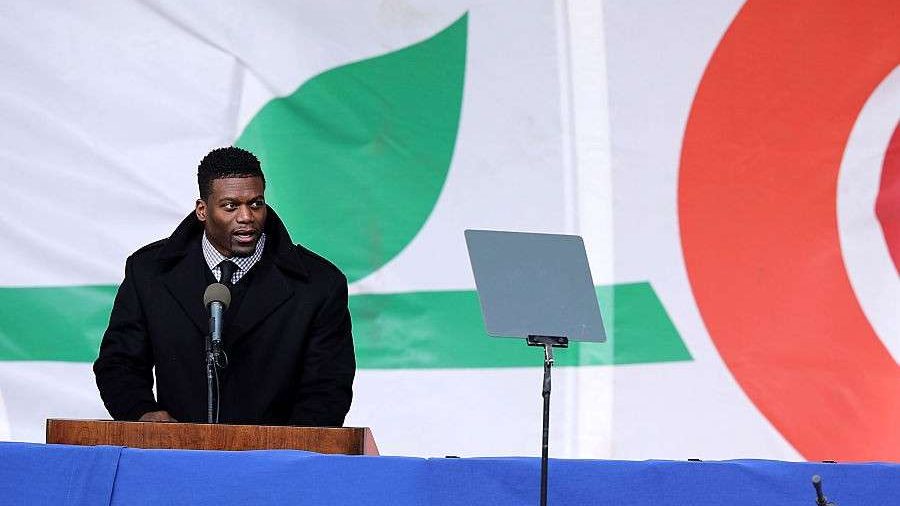Pro-life leaders should prioritize listening and understanding in order to make inroads in the Black community, Black pro-life advocate Benjamin Watson said Tuesday.
While white Christians may be comfortable identifying themselves as “pro-life,” some Black Christians who oppose abortion are reluctant to identify themselves as “pro-life” for other reasons, Watson, a former NFL player told an audience of reporters and pro-life leaders on Tuesday evening.
Watson spoke at a screening of his new pro-life movie “Divided Hearts of America” which streams online on Thursday. He and his wife Kirsten are co-executive producers of the movie.
“You look at statistics, the Black community is very, very religious, going back years and decades,” Watson said. “We have a desire to honor life.”
“What we don’t, however, have, is a desire to be affiliated, sometimes, with all the other things that are in the pro-life bucket,” he said.
Pro-lifers, Watson said, should seek to understand other issues of import to the Black community, including the racial wealth gap and unemploymentd disparities, as a means of grounding pro-life positions in broadly shared concerns among the Black community.
“For the pro-life community, it’s not about just throwing out statistics,” he said. “You want to throw the [abortion] stat out, but behind the stat there’s not a caring posture to why that might be the case.”
“The way that you bridge any gap between any communities is when you try to understand the ‘why’,” he said. “It’s been said that when white America gets a cold, Black America gets the flu. And that’s what’s happening with abortion—any negative outcome is worse in the Black community.”
“Many of us do care about life,” he added.
At a University of Notre Dame panel discussion on racism as a “life issue” in July, Watson explained that many African-Americans associate the term “pro-life” with party politics and “a host of other issues that seem to be anti-Black,” rather than with concern about abortion rates and other life issues.
On Tuesday, Watson noted that pro-lifers can more hearts through listening and understanding rather than by arguing from statistics on abortion. “The way the pro-life community bridges the gap is in our rhetoric. It’s in how we embrace. It’s in understanding,” he said.
Watson is the father of seven children and an outspoken pro-life advocate, in addition to playing tight end in the National Football League for 15 seasons. On Tuesday, he said that he and his wife were looking for a way to become more involved in the pro-life movement when they were recruited for the movie, which was directed by Chad Bonham.
“This was a labor of love,” he said of the movie, describing the goal as “just wanting to get to the bottom of what this whole [abortion] debate is about.”
Some of the interviewees in the film are pro-abortion, he said, including the New York legislator who authored the Reproductive Health Act that that Governor Andrew Cuomo signed into law in 2019, legalizing abortions in some cases up until the point of birth. Watson said on Tuesday that the New York law was part of “the impetus for the film,” with the goal of seeking to understand the issue more deeply and “see the humanity of everybody.”
The documentary explores the life issue from several angles, including racial issues of abortion clinics in majority-Black neighborhoods, and interviews of Black religious and pro-life leaders as well and members of the media.
At the Notre Dame panel event in July, Watson said that pro-lifers should take the life issue “out of the political realm.”
“The Black community is overwhelmingly pro-life in the sense of for-life, against-abortion. We are,” he said, adding that the pro-life label “has come to mean something totally different than the essence of what it is.”
Watson was also one of a coalition of Black leaders who sent a letter to Planned Parenthood head Alexis McGill Johnson, calling out the organization as hypocritical for “targeting” Black communities for abortions while at the same professing to support calls for racial justice.

